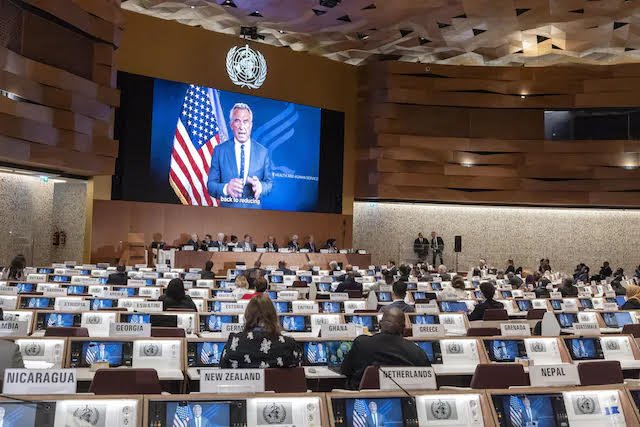…Signals Shift in Global Health Leadership
The greatest scoop in the World Health Organization today is the China’s pledge of a staggering $500 million to the global health institution. Korede Abdullah, South West Correspondent of Africa Health Report (AHR), in Nigeria examines the implications of the Asian giant’s growing influence in global health affairs.
China’s Calculated Maneuver
In a landmark move and calculated manoeuvre that has sent ripples through diplomatic and global health circles, China has pledged a staggering $500 million to the World Health Organization (WHO) over the next five years.
This historic commitment made at the World Health Assembly in Geneva on Thursday, catapults Beijing into the spotlight as the WHO’s leading state donor, effectively stepping into a role once dominated by the United States. More than a generous gesture, the move is emblematic of China’s larger ambition to reshape the contours of international governance, particularly in the health sector.
As the U.S. retreats from its traditional leadership role, Beijing is seizing the moment to assert itself not just as a benefactor, but as a central architect of global health priorities and policies. The pledge signals a strategic pivot in the balance of power—one that could redefine the future of multilateral cooperation and global crisis response.
The U.S. Withdrawal, Its Implications
Historically, the United States has been the largest contributor to the WHO, providing approximately $1.284 billion during the 2022–2023 biennium.
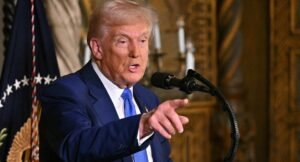
However, under the Trump administration’s “America First” policy, the US announced its withdrawal from the WHO in January 2025, citing concerns over the organization’s efficiency and alleged bias towards China.
“The World Health Organization has failed in its core mission,” President Donald Trump declared during a press conference at the time of the announcement. “We’re spending billions while they defend China and mislead the world. The American people deserve better accountability for their money, Trump emphasised.”
This abrupt decision created a substantial funding vacuum, leading to a 22% reduction in the WHO’s approved 2026–2027 program budget—from $5.3 billion to $4.2 billion. The funding shortfall has raised concerns about the WHO’s capacity to respond effectively to global health emergencies and maintain essential health programs worldwide.
“We will redirect those funds to better use—direct health initiatives that benefit Americans first,” Trump added, reinforcing his administration’s rationale behind the move.
China’s Strategic $500 Million Pledge
China’s Vice Premier Liu Guozhong announced the $500 million pledge at the World Health Assembly, emphasizing the need for global solidarity in health and rejecting unilateralism.
This contribution is part of China’s broader strategy to enhance its global standing and reshape international norms, particularly in the wake of the U.S. retreat from multilateral commitments.
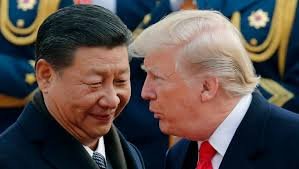
With this pledge, China aims to fill the leadership vacuum left by the U.S., expanding its influence in international institutions and promoting its vision of global governance.
The funding is expected to support various WHO initiatives, including pandemic preparedness, disease prevention, and health system strengthening in low- and middle-income countries.
Evaluating the Impact on WHO Operations
While China’s $500 million pledge is substantial, it falls short of fully compensating for the U.S. withdrawal. The WHO has faced significant financial constraints, leading to program cuts, job losses, and increased health risks in vulnerable regions.

To mitigate the funding gap, other donors have stepped forward. The Novo Nordisk Foundation pledged $57 million to the WHO, and additional countries have collectively pledged over $170 million. Despite these efforts, the WHO’s budget remains under pressure, highlighting the challenges of relying on voluntary contributions and the need for sustainable financing mechanisms.
China’s Growing Influence in Global Health
China’s increased involvement in the WHO reflects its broader ambitions to play a leading role in global health governance. By stepping into the funding void, China is not only enhancing its soft power but also shaping the global health agenda to align with its strategic interests.
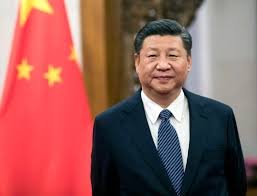
Analysts suggest that China’s engagement with the WHO could influence policy decisions, particularly in areas such as disease surveillance, health technology standards, and emergency response protocols. However, concerns have been raised about the potential for geopolitical considerations to affect the impartiality and effectiveness of the WHO’s work.
Expert Opinions and Perspectives
Brett Schaefer, a senior research fellow at The Heritage Foundation, commented, “In terms of the contribution, the WHO is a cheap date. China’s $500 million pledge, while significant, is a strategic investment to increase its influence in global health governance.”
Director-General of WHO, Dr. Tedros Adhanom Ghebreyesus acknowledged the challenges posed by funding shortfalls, stating, “In at least 70 countries, patients are missing out on treatments, health facilities have closed, health workers have lost their jobs, and people face increased out-of-pocket health spending.”
Beijing’s Health Diplomacy Push
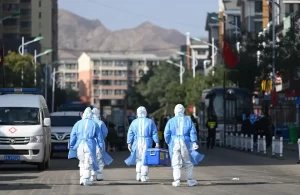
Meanwhile, Chinese officials have defended their increased WHO involvement as a counter to U.S. criticism of China’s handling of the COVID-19 outbreak, with a spokesman stating, “It’s astonishing that a country like U.S. that announced its departure from the WHO would attack another country that is expanding its investment.”
Dr. Murtala Oluwadare, an international affairs analyst who spoke with Africa Health Report (AHR) on Friday said China’s $500 million pledge signals a strategic bid to expand soft power, reshape global health governance, and challenge U.S. influence within the global community.
“China’s $500 million pledge to the WHO is more than financial—it’s a geopolitical maneuver. By outpacing the U.S. in health diplomacy, Beijing is positioning itself as a leader in multilateralism, seeking to fill the vacuum left by Washington and redefine global norms in its Favor”, Oluwadare explained.
The Road Ahead: Bridging the Funding Gap
The WHO’s financial sustainability remains a pressing concern. While China’s pledge and other contributions provide temporary relief, they do not fully address the long-term funding needs of the organization. The WHO has called for a 20% increase in mandatory member contributions to stabilize its budget and reduce reliance on voluntary funding.
Moreover, global health security requires an estimated $10.5 billion per year to strengthen preparedness, particularly in low- and middle-income countries.
Achieving this level of investment will necessitate coordinated efforts among governments, philanthropic organizations, and the private sector.
China’s $500 million pledge to the WHO marks a significant shift in global health leadership, reflecting the country’s growing influence in international affairs. While this contribution helps to bridge the funding gap left by the U.S. withdrawal, it also raises questions about the future of global health governance and the balance of power within international institutions.
As the world grapples with ongoing health challenges, the need for robust, transparent, and equitable funding mechanisms becomes increasingly critical.
The international community has been urged to work collaboratively to ensure that the WHO and other global health organizations are equipped to protect and promote health for all.

